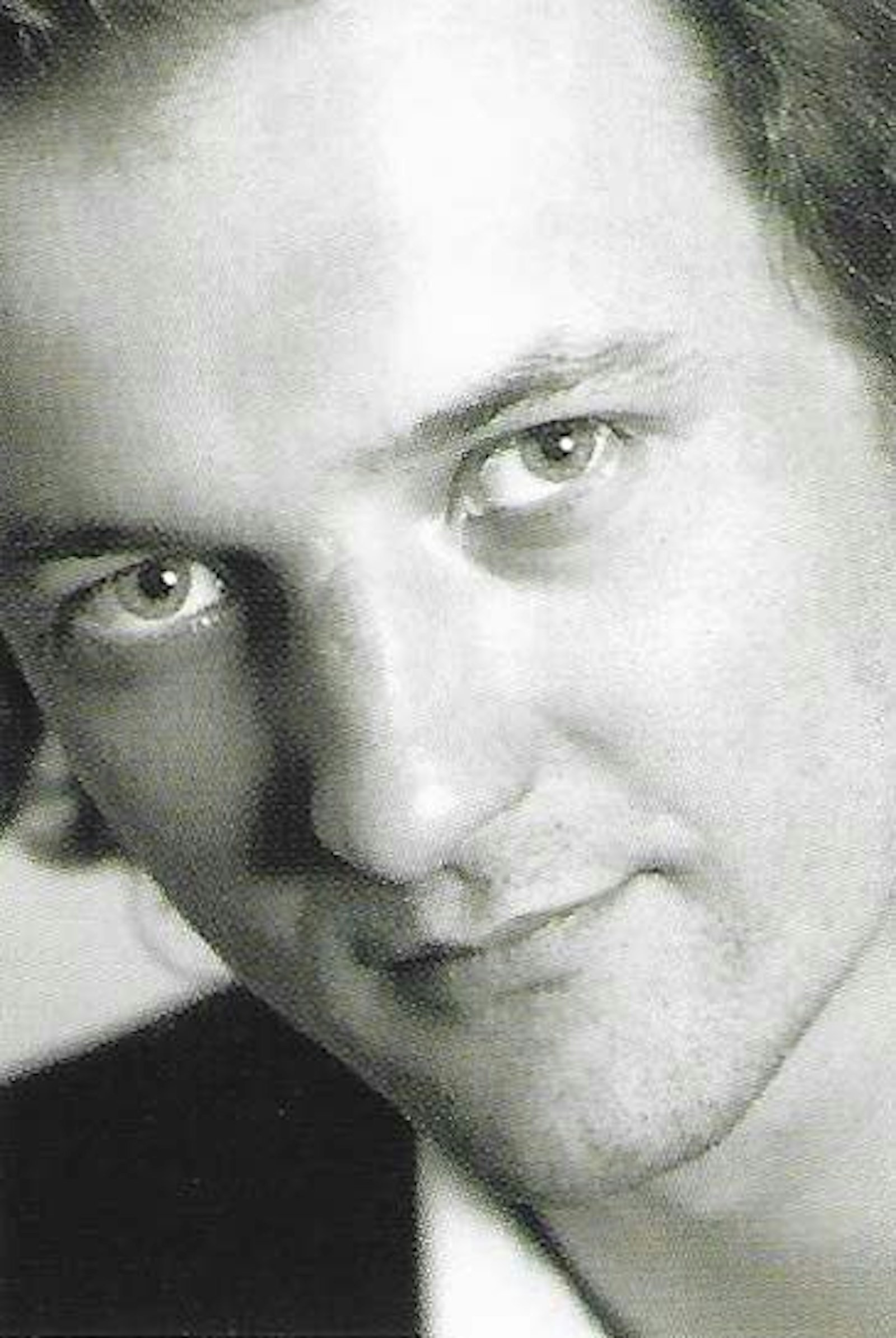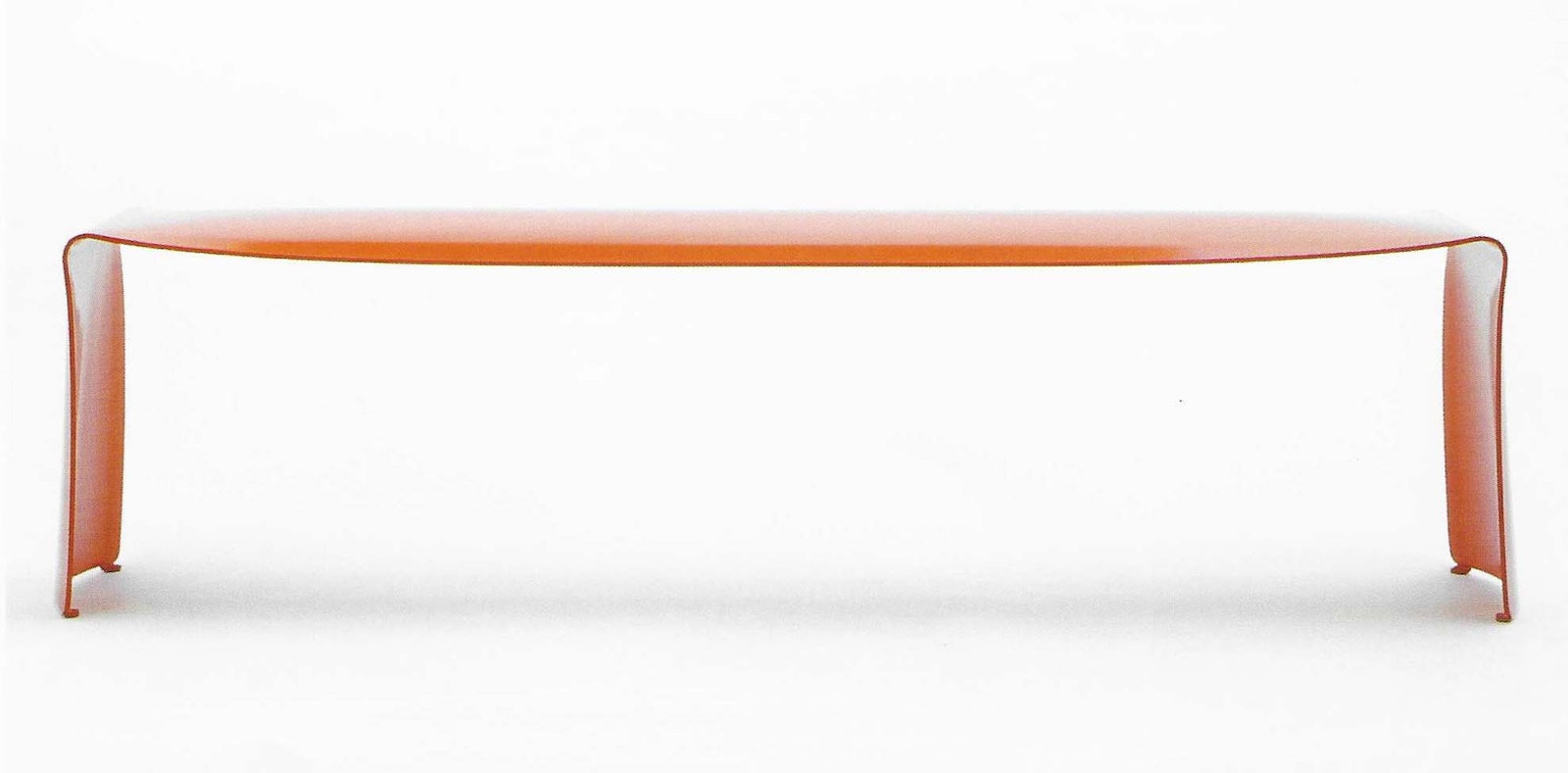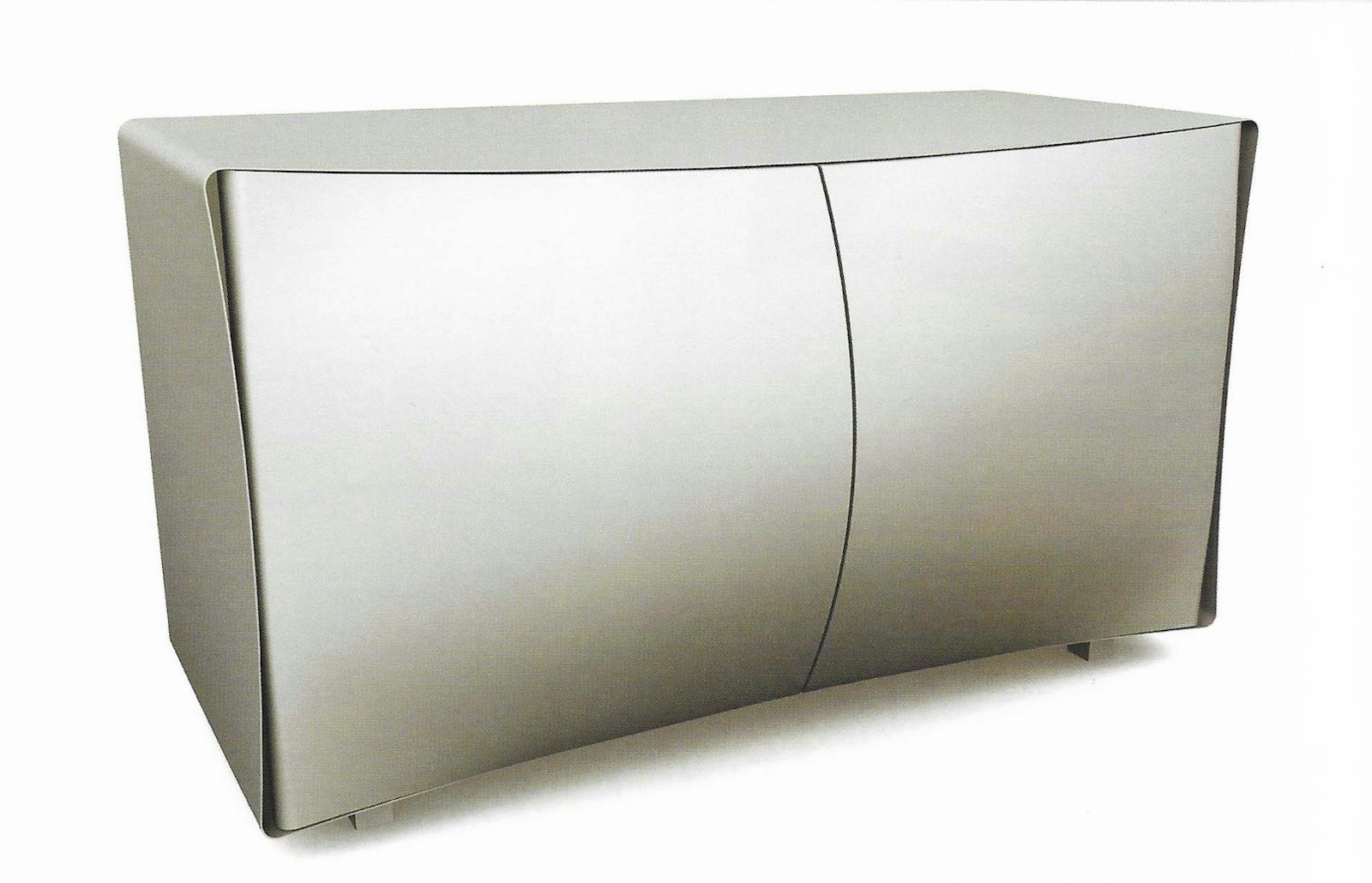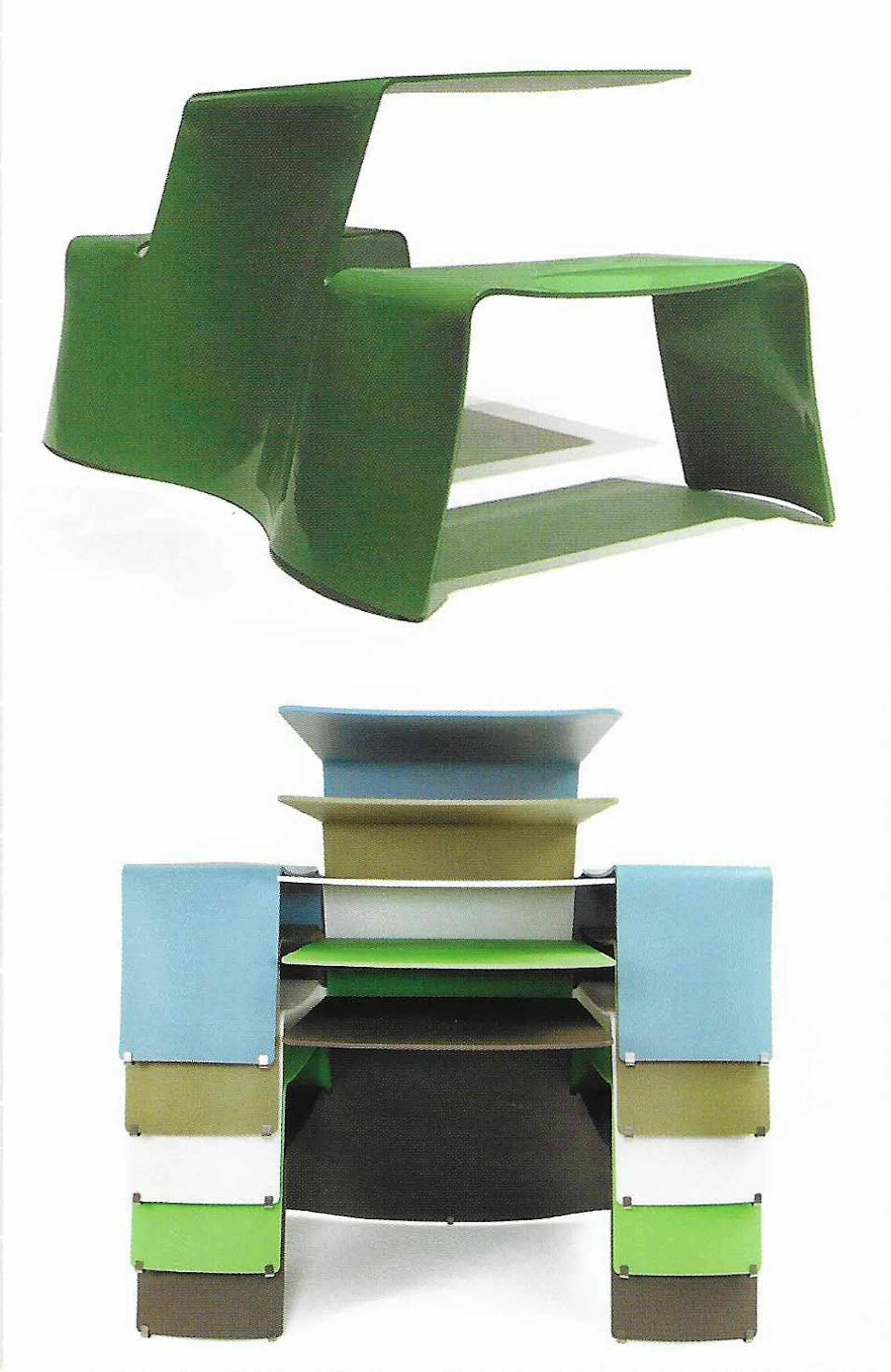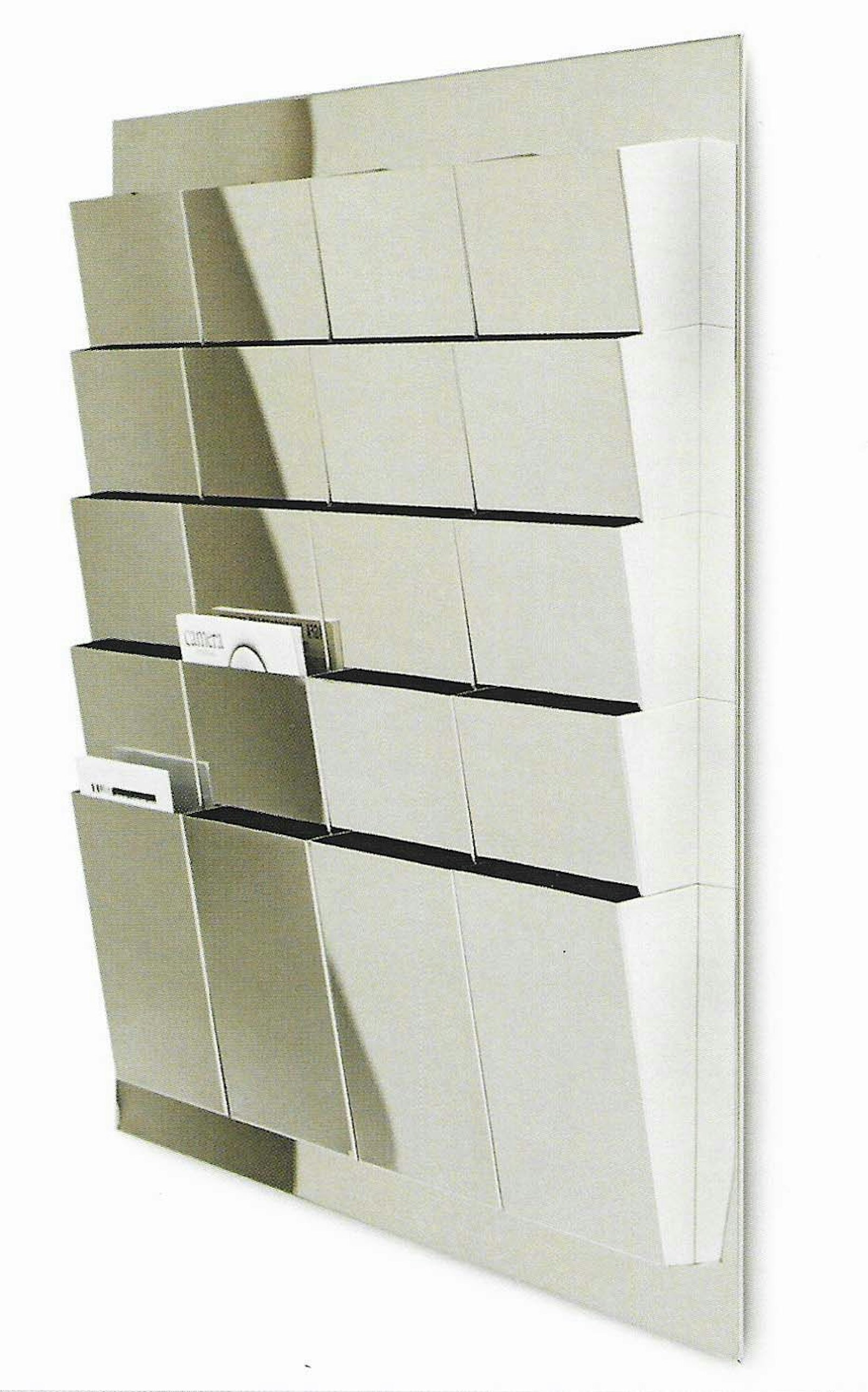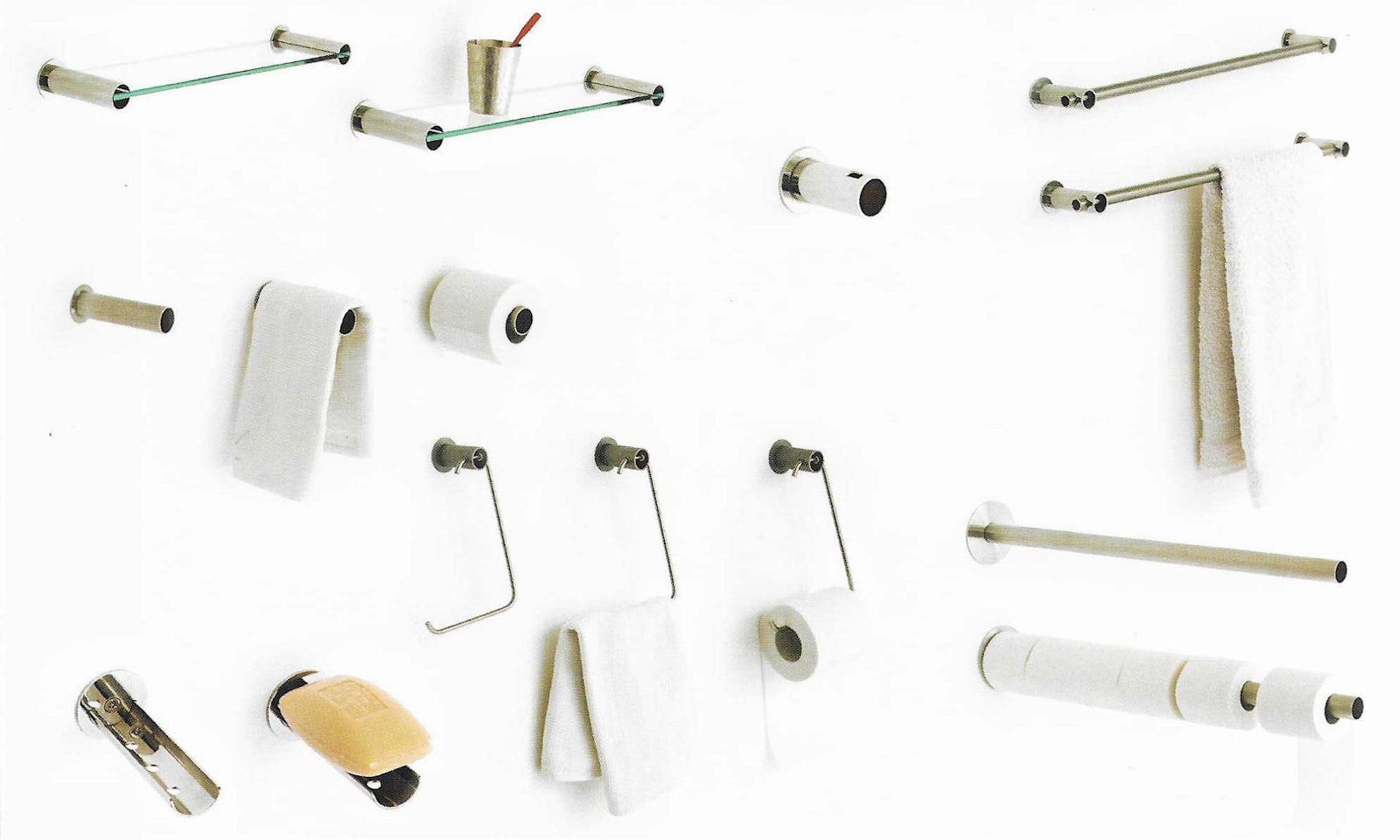de Velde
Xavier Lust
There are several ways to stimulate creativity. A fruitful environment, a pliant mind, a good conversation, an unstoppable imagination.
Another important factor, which may not be forgotten, is restriction. List all the restrictions you have (or want) to take into account and then see how you can realise all the things that are in your head. For example: you want to make a bench which is quite cheap concerning raw material price and producer price and you like polished, rounded shapes. A cheap production doesn't require large investments in moulds and in this way you meet aluminium. Not too heavy, flexible but strong enough and payable. And see, you suddenly made a classic which is put in the MDF Italia collection. This is what happened to Xavier Lust. He was born in Bruges in 1969. After he graduated at Sint-Lucas in Brussels, he wants to design payable furniture in particular, besides his work as an interior architect. In 1999 he develops his own technique to reshape metal sheets without the use of moulds. The result is the shape of "Le bane", a sober line that looks very fragile, but is really solid.
Xavier Lust defines good design as the extent in which technique, function and aesthetics constitute a dialogue. Moreover he wants to take the cultural aspects into account. If he can find a balance between all these aspects, he'll reach his aim as a designer.
Constants have always been present in his work. His designs are characterized by simplicity. Simplicity in shape, in material, in meaning. In the series bathroom accessories "Ancillaris" from 1999, the whole system of towel racks, toilet paper holder, shelf, soap holder, ... are reduced to a system of tubes and holders. A minimum of shapes and materials which create several possibilities. The mirror "Gigogne" completes the collection.
Furthermore it's striking that metal or aluminium always comes back. The material metal is deliberately chosen. The material is very aesthetic what is texture and basic colour concerned and it offers a lot of possibilities without the need for moulds. Metal means something magic for Xavier Lust. It offers a lot of possibilities, can be very light, is strong and can be treated quickly. An additional advantage for the user is that Lust's furniture fits together.
The importance of the process that he uses since 1999 may not be underestimated. By means of the folding technique, '"Le banc" and other pieces of furniture such as the "T chair'' get the same bending which becomes his typical feature. The shape of the bench is very transposable to "La table basse", "La grande table" and the legs of "La chaise". So it's not only MDF ltalia that noticed Xavier's talent.
The MoMa in San Francisco has put the "T chair'' in its collection and De Padova is interested in his "Finder", a wall sorting system, an object that he earlier brought out under his own control. lt was his first piece for Padova in a format that was a little bit more commercial. The collection has been enlarged afterwards with the umbrella holder "Rainy day in Switzerland" and the cupboard "Crédence".
The "Crédence" is in different ways a new step in Xavier Lust's work. Even in its name, there is a difference. Crédence refers to the table on which the attributes stand that are used du ring the worship. Another new aspect is that it's a clearly exclusive piece of furniture that will only have 200 pieces. The cupboard looks very closed and shows its treasures only to the attentive user. The seam in the middle is not the opening, but the hinge. The doors will only open for those who put their hand in the space at the side. A conspicuously differentkind of object, but clearly characterized by the designer.
Not only ltalian companies have discovered Xavier Lust, Together with Dirk Wynants, business manager and designer for Extremis, he creates the "PicNik"', a garden table. This piece of furniture, again made in metal, is very recognizable by the seats but breaks through this closed line in the tabletop. This creation again shows that Extremis is a progressive garden furniture producer and has a lot of success at fairs, with competitions and in design magazines. Extremis wants to be an alternative for the small bistro table on the terrace or court of people with no or a small garden, but who do want to enjoy the weather. Thanks to its own shape, it can not be confused with other pieces of furniture and, it puts Flanders again on the design map.
2003 meant a lot for Xavier Lust: besides the Henry van de Velde Award for Young Talent, he received two other awards in Cologne and Paris. "La grande table" has been nominated for a Special Mention on the Compasso d'Oro 2004, the most prestigious design award in ltaly. For a real Belgian product, that has been made with Flemish aluminium, folded in Wallonia and sent to ltaly for a control and signed by a designer who comes from Brussels with roots in Bruges.
